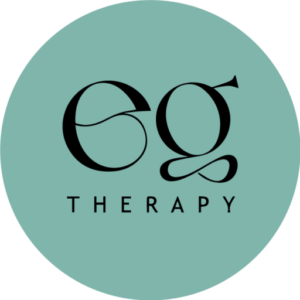

Compassionate Support for Women with OCD Take The First Step Toward Change
Compassionate Support for Women with OCD Take the First Step Toward Change
Living with OCD can be overwhelming. Intrusive thoughts, doubts, or urges can take over, leaving you feeling trapped in a relentless cycle of anxiety, fear, and compulsive behaviours. But there is hope—and you're not alone.
Hi, I'm Emily, a therapist specialising in helping women with OCD through Cognitive Behavioural Therapy (CBT), Acceptance and Commitment Therapy (ACT), and Exposure and Response Prevention (ERP).
I understand just how exhausting it can be to live with those relentless thoughts and behaviours. The constant anxiety, the ‘what-ifs’ running through your mind—it’s a lot. But together, we can start to lift that weight. My mission is simple: to help you break free from OCD’s grip and start living life on your terms again (yes, it's totally possible!).
What is OCD?
Obsessive Compulsive Disorder (OCD) is a type of anxiety disorder that affects around three-quarters of a million people in the UK. It often begins with unwanted, intrusive thoughts about things like hygiene, health, religion, sex, violence or paedophilia. These thoughts are distressing, and while most people can brush them off, those with OCD get stuck, questioning what these thoughts mean about them or the future. This anxiety triggers compulsions—repetitive actions, rituals or mental arguments aimed at neutralising the distress.
Compulsions may take various forms, from physical actions like tapping or following specific patterns to mental habits such as seeking reassurance, checking thoughts, or ruminating endlessly. Unfortunately, these behaviours reinforce the OCD cycle, consuming more time and energy, making life increasingly restricted and difficult. But with the right approach, relief is possible.
What is OCD?
Obsessive Compulsive Disorder (OCD) is a type of anxiety disorder that affects around three-quarters of a million people in the UK. It often begins with unwanted, intrusive thoughts about things like hygiene, health, religion, sex, violence or paedophilia. These thoughts are distressing, and while most people can brush them off, those with OCD get stuck, questioning what these thoughts mean about them. This anxiety triggers compulsions—repetitive actions, rituals or mental arguments aimed at neutralising the distress.
Compulsions may take various forms, from physical actions like tapping or following specific patterns to mental habits such as seeking reassurance, checking thoughts, or ruminating endlessly. Unfortunately, these behaviours reinforce the OCD cycle, consuming more time and energy, making life increasingly restricted and difficult. But with the right approach, relief is possible.
How I Can Help You
OCD can feel all-consuming, but it doesn't have to define your life. My approach is grounded in evidence-based therapies including Cognitive Behavioural Therapy (CBT), with a strong emphasis on Exposure and Response Prevention (ERP)- the most effective treatment for OCD.
Additionally, I incorporate practical skills from Acceptance and Commitment Therapy (ACT) and Compassion-Focused Therapy (CFT) to help you relate to your own mind in a whole new way, build mental resilience long-term and treat yourself with greater kindness.
My work is rooted in compassion, understanding, and the belief that meaningful change is not only possible but within reach. Together, we'll work to break the OCD cycle and guide you toward a life that feels more authentic, fulfilling, and free from the "OCD bully."

Feeling ready to take the first step?
The best way to get started is by watching my free masterclass here.
It walks you through the exact approach I use, so you can see if it feels like the right fit.
And if it does, you'll be able to book a call with me to discuss next steps.
Testimonials
“Emily completely changed my life, providing me with a safe zone that made me not fearful of the future but extremely excited about it, grateful to be alive and happy with myself…I will always be grateful for her help and would recommend her to absolutely everyone I know who is seeking help of any kind”
“I’ve seen a few therapists in the past, but it wasn’t until I started working with Emily that I was finally able to take my life back from OCD and anxiety”
